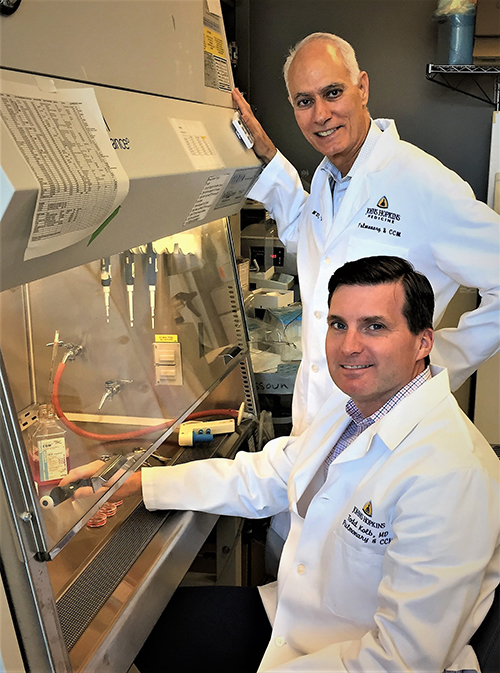
The research training can be focused on clinical investigation, basic science, translational science, global health or medical education, depending on the interests of the fellow. We have been uniquely sucessful in this goal; about 95% of all our graduates from the past 5 years remain full-time University faculty as researchers and clinician-educators. The research training can be focused either on clinical investigation, basic science, or translational medicine, depending on the interests of the fellow. The program is designed to develop independence under the tutelage of a mentor. A major emphasis of the experience is teaching the skills necessary to perform research and win peer-reviewed funding in our current competitive climate. This includes training in writing grants and manuscripts, learning new experimental techniques, analyzing data, and presenting findings to colleagues and at national meetings.

Each fellow selects a faculty research mentor. To aid in this selection, an “Introduction to Research Day” is held, during which faculty provide an overview of potential research opportunities and previous fellows speak of their experience. Each new fellow meets with the Division Director, Program Director, and potential mentors to develop an individualized program of patient-based or laboratory based research. Although there is a broad range of fields and mentors within our division, fellows may also explore research options within other divisions, departments, and schools at Johns Hopkins. This results in a nearly limitless range of opportunities to suit individual interests. Fellows may also take courses toward an advanced degree in clinical investigation.
Recent fellows have completed research in Divisions of Immunology, Infectious Disease, Gerontology, Genetics, the Departments of Cell Biology , Anatomy, and Molecular Biology, or the Department of Environmental Physiology in the School of Public Health. Projects have ranged from the molecular genetics of sepsis, to pulmonary function studies in rural Nepal, Barbados, and Peru. Fellows may also take courses toward an advanced degree in or clinical investigation.
All fellows are expected to apply for an individual grant during their first research year. Funding sources include the NIH, specialty societies, and foundations. This effort teaches the essential skills of grant-writing and requires the fellow to develop, with their mentor, a systematic plan to guide their research years. Among the current fellows, 70% of those in years eligible for grant support have been successfully funded.
To ensure that fellows working far afield remain integrated with their home division, a guidance committee meets regularly with each fellow to review their progress and assist with their career goals. In addition, fellows attend a large variety of divisional research and clinical conferences, and present their ideas and findings at several stages between inception and completion. This allows fellows to test new ideas and to become comfortable interacting with their colleagues in both informal and formal settings. A wide variety of lectures, workshops, and courses are available on career development topics such as how to write a grant, the art of scientific presentation, and understanding the promotions process. These include evening dinner seminars at a faculty member’s house, as well as more formal courses. For budding clinician-educators, courses in teaching skills and curriculum development are also available.
The Fellowship Program has the distinct advantage of being supported by the largest and most successful National Institutes of Health (NIH) Pulmonary Training Grant in the country. The vast majority of the Division’s research is funded by the NIH, either through large, integrated programs or through individual grants assigned to specific faculty members.